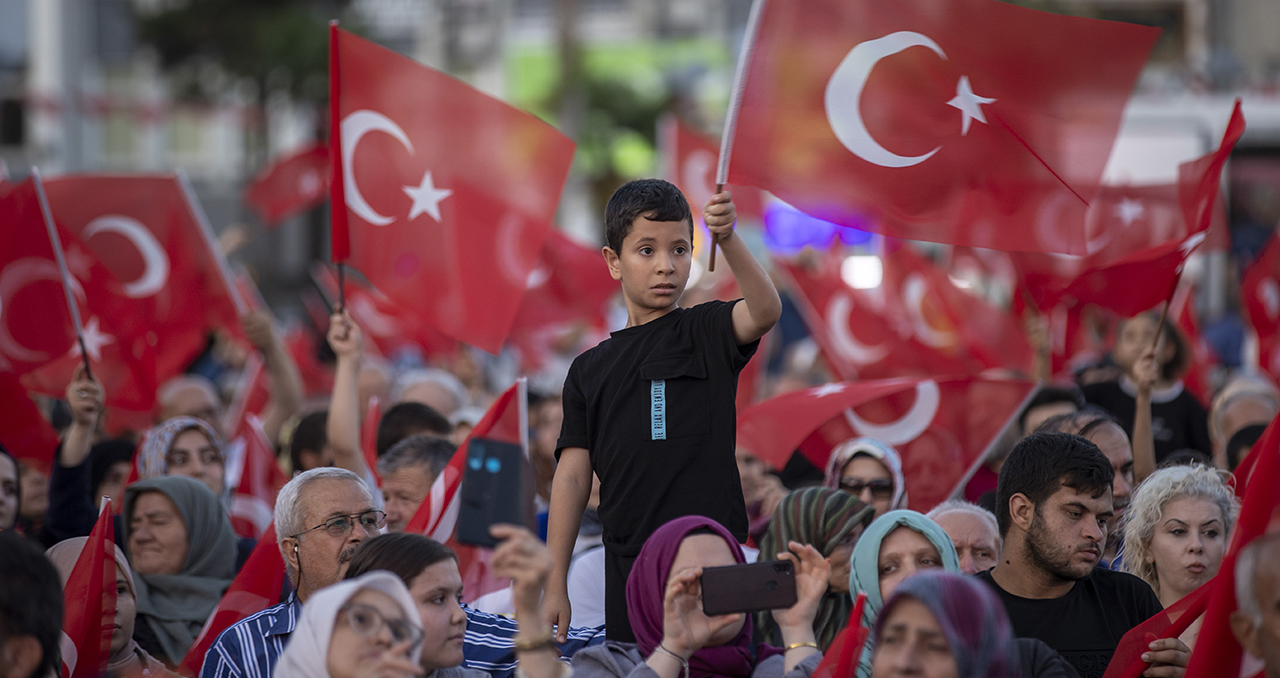Doing the right thing at the right time is essential for finding a comprehensive solution to the Kurdish issue. Half-baked measures will not produce concrete results.
Timing is crucial because the more we delay the issue, the more complicated it becomes. There will be no lasting solution to the Kurdish problem unless and until the issue is taken up by the whole nation. The Kurdish issue cannot be solved by Kurds alone. Everyone who has a stake in the issue, which includes practically every Turkish citizen, must be part of the process. In this sense, both political will and public opinion are important for take these steps that are long overdue.
The military operation of the Turkish army into northern Iraq was a necessary measure to contain Kurdistan Workers' Party (PKK) terrorism. But the real success of the diplomatic and military process is in the political field. Iraqi President Jalal Talabani's visit to Ankara only a week after the operation will be the start of something big. His visit confirms that, in addition to the international community, the highest Iraqi authorities understand and accept Turkey's concerns over the PKK as a terrorist organization. The visit also shows that Turkey has no qualms about talking to the Kurds of Iraq. All of this, including Talabani's visit, was made possible by the military operation. Those who are lost in a useless debate about the success or failure of the operation are missing the whole point. Now Turkey is in a much stronger position to develop its relations with northern Iraq.
On the Iraqi front, the operation did not have any negative impact on the relationship between Ankara and Baghdad. As a pragmatic politician, Talabani seized the opportunity and came to Ankara with a message of friendship and cooperation. The only political figure who has yet to be part of the process is Massoud Barzani. Some analysts see this as a sign of Barzani's isolation and applaud it. But the process requires the involvement of all parties. Isolating or marginalizing Barzani should not be a goal in itself. Just like Talabani, Barzani is a key figure of the Iraqi Kurdish leadership and the Iraqi political scene. But to help the process Barzani should follow a line of rational politics and join Turkey in its fight against the PKK. Once the PKK card is out, it will be easier to talk about Kirkuk, where Barzani has invested so much of his political capital for all the wrong reasons.
But the real issue is at home. For the last seven years, there has been much talk about getting closer and closer to a final solution to the Kurdish problem. Ocalan's capture was an opportunity, but the momentum has been lost on that front. Prime Minister Recep Tayyip Erdoğan's initiative to start a process of reconciliation has had its ups and downs. Domestic dynamics are more conducive to taking the kind of bold steps that will be acceptable to everyone and not too costly to the political actors. Despite the Democratic Society Party's (DTP) irresponsible policies, the current Parliament has all the potential and power to work out a solution that will be acceptable to the sensibilities of all actors.
The initial measures should include Kurdish broadcasting, on which the director of the national television station, TRT, is working and Kurdish as an optional course in schools, on which the ministry of education should start working. Equally important is a major revision and revival of the amnesty laws that are currently in place. Amnesty should not be seen as a concession to the PKK. To the contrary, the aim of such amnesty laws is to weaken the terrorist organization and stop the recruitment of new members.
The economic package that will be announced later this month by State Minister Nazım Ekren should also be a major contribution to reducing unemployment and improving economic conditions in the region. No one should belittle the impact of economic measures. The poorest areas of Turkey must take priority not simply because this will undermine the grounds for grievances and r








